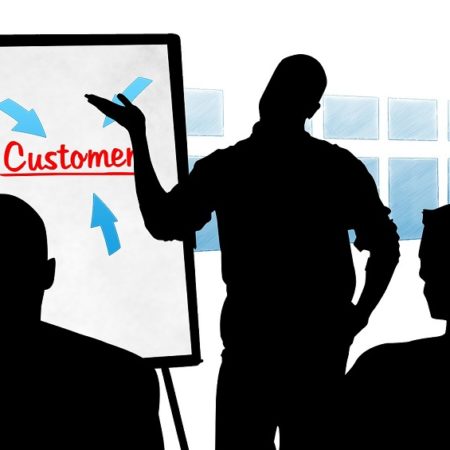“It is not the employer who pays the wages. Employers only handle the money. It is the customer who pays the wages.” – Wise words from a man who knows what he’s talking about, Henry Ford, founder of the Ford Motor Company.
We are all aware that customers are valuable, the saying “customers are always right” isn’t always necessarily true, however despite this, treating your customers well and building good relationships with them is key to a successful business.
Often business owners are focused on selling their products and services, they always see pound sign instead of the people who are spending those pounds, and if you’re struggling with your business, you need to ask yourself if you have been guilty of this.
To build a good relationship with your customers from the beginning, you need to know who they are, who it is that you’re targeting, what do they like and what do they want? A simple way to find your target audience is to look at the consumers in your local area and see how they can benefit from your product or service. Look at particular demographics such as age, income, profession, or race and work out who would want or need to buy your product. Then you’ll need to look at the competition – or lack of it. If you can’t identify any direct competitors, you may have found a gap in the market but do be careful that you’re not creating a product without a market to sell to! If you do have competition, then your target audience will be similar to the customers who they serve.
“If you want customers to know they matter to you, show it by being interested in what matters to them.” – Scott McKain, Founder, and CEO of Distinction Institute.
Finding your target audience will make your life so much easier, the customers will automatically tell their friends and family about you and perform word-of-mouth marketing for you and spread your brand image, so finding these customers early is essential to growing your company.
“Make the customer’s problem your problem.” – More wise words from customer service expert, Shep Hyken.
Looking back at your own experience, have you ever been bowled over by the service you’ve received? Many companies overlook customer service, but it’s far cheaper to retain your existing customers than it is to get new ones. Customer service is also essential in all the different departments that comprise your business.
Often, organizations just settle for “good” service rather than going the extra mile their customers to keep them happy. But the key difference between “great” and “good” customer service is that to give excellent customer service you are only doing only the minimum to keep the customer satisfied. However, offering excellent customer service means that not only are you keeping them satisfied, but going beyond that and retaining their loyalty for the future.
You can’t look at customer support as a single department within your company – looking at it holistically should be the first step if you want your customers to return. Every member of your staff, at some point, will be involved in your customer support system. It could be the logistics department, the quality control manager or the front-desk supervisor answering the phone or emails. You need to make sure that you have invested in the service you can offer in all departments. Software such as Copper is a new kind of productivity Customer-relationship management designed to do all your busywork, so you can focus on building long-lasting business relationships. This kind of investment is essential for your company and all its departments can achieve their respective goals.
Customer satisfaction plays a significant role regarding how much revenue a customer contributes towards your business and Accenture’s 2008 global customer satisfaction survey report found that pricing of a product or service is not the key reason behind a customer’s relationship with you, it’s actually down to the overall customer service they receive from you. A study by business services company InfoQuest has also revealed that “fully satisfied customers” contribute at least 2.6 times more towards the company’s revenue than the less satisfied customers.
Again, it’s not just the money that these customers are responsible for, but McKinsey found out that an unhappy customer will tell 10-15 people about their experience and more than 14% of your unsatisfied customers will tell at least 20 people about their experience of buying a product or service from you. Customer satisfaction is closely linked to repeat purchases and revenue. But many companies tend to forget how customer satisfaction can negatively impact the business. It’s one thing to lose a single customer because they were unhappy, but it’s another thing to lose 30 customers because of negative word of mouth publicity by that customer.
Leading consultancy services firm, Lee Resources, found out in a study that for every single customer complaint, there are 26 other unsatisfied customers who remain silent. This is a quite a scary amount, and while the majority of the companies believe they are the best in business and have no unsatisfied customers, the reality is 96% of dissatisfied customers never file a complaint, they just don’t come back.
Customer service plays a significant role in your business. It’s the leading indicator for measuring customer loyalty. Identify your unhappy customers, reduce the churn, and increase revenue. It’s also a key point of differentiation which helps to attract fresh customers in a competitive business environment.
Top quality customer service goes a long way to create customer loyalty, so remember, that customers today are not interested in the product or service that they are buying, they are interested in their experience, their journey and the add-on elements they receive. From the smile, they receive when they walk in, to the refund they receive if they are unhappy with the product, everything counts in customer satisfaction.
